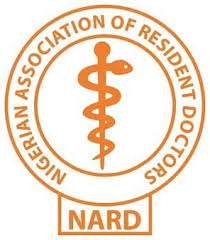The pharmaceutical industries have called for the restoration of the Drug Revolving Fund (DRF) as a means to address the availability of essential drugs in government hospitals in the country.
PSN President, Prof Cyril Usifoh, said the availability of essential drugs in government hospitals is being hindered by interference in the DRF by Chief Medical Directors (CMDs), resulting in receivables and creating an urgent need for restoration
He urged the government to address the issue and respond to the plights of the masses, as well as recognise pharmacists as primary healthcare providers. “There is a need to reverse the sorry state of DRF in our tertiary healthcare facilities. This will address the current state of indebtedness to pharmaceutical companies and manufacturers, as well as ensure uninterrupted access to vital medications for the public,” he said.
Usifoh advocated enriching of Drug Management Agency (DMA) to oversee the efficient coordination, distribution, and availability of essential medicines. Public-private partnerships through DMAs will further enhance the affordability, accessibility, and availability of these crucial medications, aligning to strengthen the healthcare system and improve overall public health.
The pharmacists appealed to the government to implement the consultant pharmacists’ policy approved and gazetted in all the federal health institutions to maximise the growing contributions of pharmacists, as well as the accessibility of pharmacy students in the hospitals for clinical ward rounds and training by pharmacists. “Addressing these concerns will not only improve the working environment for pharmacists but will also have a direct positive impact on public health services as a whole,” Usifoh said.
President, of the Federation of Nigeria Pharmaceutical Industries Association (FeNPIA), Dr Okey Akpa, said the Nigerian Pharmaceutical industry is heavily import-dependent. “Most of their production inputs and finished pharmaceutical products are imported, which means that the final pricing of the finished product depends on the Foreign Exchange (FOREX) rate.
“We recommend that the pharmaceutical industry be given special priority to access forex at rates that will moderate the final cost of medicines and other strategic healthcare commodities of critical need,” he said.
Apka said members are devoted to promoting the growth and sustainability of the industry, striving for Nigeria’s self-reliance in producing healthcare products and adhering to global quality standards.
While noting that his members have invested in state-of-the-art manufacturing facilities, and received certifications from the World Health Organisation (WHO) for Good Manufacturing Practices (GMP), he explained that the association’s continuous efforts will ensure the availability and affordability of effective and\ safe medicines, including rare and innovative ones, by focusing on local production and strategic importation.
He said addressing the challenge of procurement, is one of the ways to quickly improve access to quality, safe and productive medicines across the whole healthcare value chain. “As pharmacists, we recommend a coordinated and strategic procurement process, which could be by way of pooled procurement or public-private partnership in the medicine supply chain, as is being practised currently between some states and members of the pharmaceutical industry. “There is a need to foster strong collaboration between the National Health Insurance Authority (NHIA), local manufacturers and overseas pharmaceutical distributors/importers to achieve Universal Health Coverage in line with the NHIA Act 2022.”
Akpa said: ‘We propose a zero-duty rate for local manufacturers on pharma machinery, equipment, and accessories. This will drive the growth of the industry and make the industry competitive in the African continent, as this applies to most other African countries prioritising pharma manufacturing.”
Presently, pharmaceutical machinery, equipment and accessories attract from 5 per cent to as high as 25 per cent in some cases. “Critical raw materials and packaging materials, based on extant fiscal policy, raw materials for pharmaceutical products are to be VAT-free and this should be sustained as against the recent push by the Nigeria Customs Service (NCS) to introduce VAT to some Pharmaceutical raw materials and even some Finished Pharmaceutical Products. The high tariff on some pharmaceutical manufacturing inputs needs to be urgently reviewed downwards as this will help further reduce the cost of drugs,” he said.
Akpa said there is a need to create a N600 billion Pharmaceutical Manufacturing Development Fund at the Central Bank of Nigeria (CBN) or Bank of Industry (BOI) at 5 per cent interest over a minimum 7 to 10-year tenor to support the Pharma Manufacturing Value Chain, vaccines, critical supply chain interventions, Research and Development (R&D), bioequivalence studies, WHO prequalification, and regulatory development.
He said the fund will fast-track Nigeria into becoming a natural hub for the pharma industry in Africa, with benefits ranging from healthcare to forex earnings and contribution to GDP and employment. “We are committed to collaborating with the government to ensure sustainable access to quality, safe, effective and affordable medicines, vaccines and medical devices in Nigeria.
He said FeNPIA members would continue to work with regulatory agencies such as the National Agency for Food and Administration and Control (NAFDAC), and other critical government agencies in achieving the objectives of unlocking the healthcare value chain.
The Minister of Health and Social Welfare, Prof Muhammad Ali Pate, said recently that the government is committed to creating an enabling environment to unlock the pharmaceutical industry value chain and healthcare sector.




